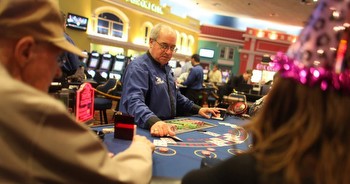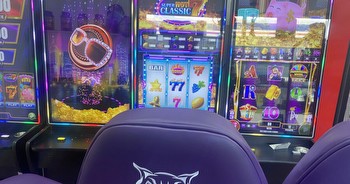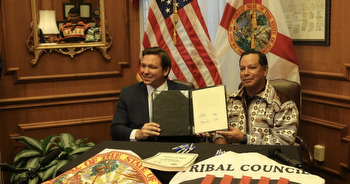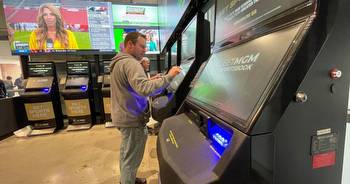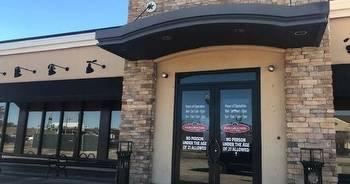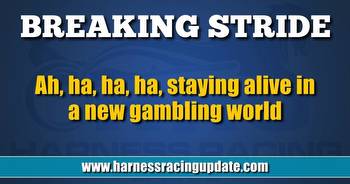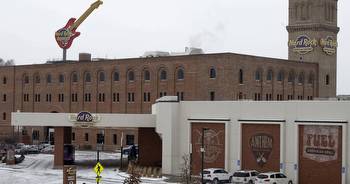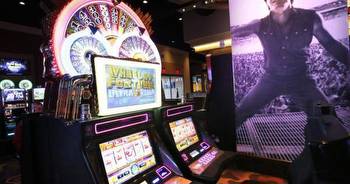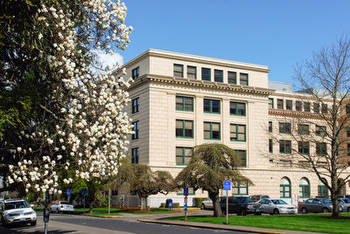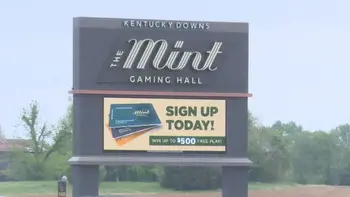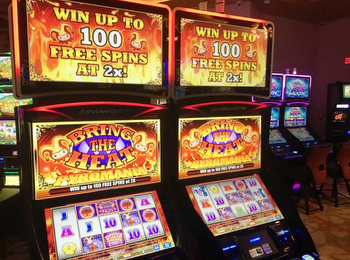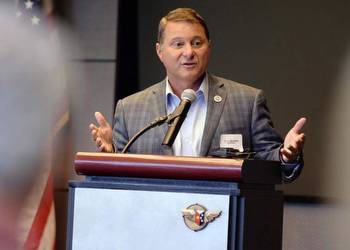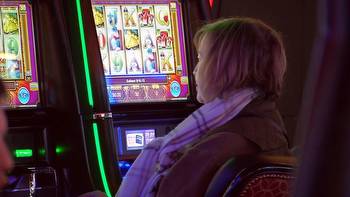Court won't reconsider slot machine ruling, group wants 'parlors' to close
UPDATE, POSTED 1 P.M. JAN. 21, 2021
LEXINGTON, Ky. (WTVQ) – A group that has waged a 10-year battle against what he calls illegal slot machines in the state praised a state Supreme Court ruling Thursday and said parlors where the games are located should be closed.
The Family Foundation welcomed the high court’s 6-0 decision that turned down the petitions of the race tracks and the Kentucky Horse Racing Commission to rehear the decade-old case contesting the legality of so-called “historical horse racing” slot machines.
The Court had ruled on Sept. 24 last Fall in a unanimous 7-0 decision the machines did not meet the definition of parimutuel wagering and were therefore illegal.
Gov. Andy Beshear did not immediately respond to a request for comment. The Horse Race Commission said it will abide by last fall’s ruling.
“The Kentucky Horse Racing Commission (KHRC) will act in accordance with the terms of the judgement entered by the Franklin Circuit Court, pursuant to the September 24, 2020 Opinion of the Kentucky Supreme Court. KHRC will not provide additional comment at this time, due to ongoing litigation,” the Commission said.
The Family Foundation said it fully expects the tracks and allies in state government to close the doors on the facilities.
“The state’s horse racing tracks have been legally running from the law and the State Constitution for ten years while the regulatory agency overseeing them has looked the other way. Now they’ve run out of options,” said Martin Cothran, spokesman for The Family Foundation, the group that contested the legality of the machines.
“This decision was something of a formality, since the Court rarely grants petitions to try a case over again,” added Cothran, spokesman for The Family Foundation. “And since this case spent ten years in the courts and the ruling was unanimous, it was even more likely the Court would turn them down.”
After engaging in discovery, The Family Foundation attorney, Stan Cave, argued the so-called “historic horse racing” machines were really slot machines posing as parimutuel horse racing.
“The tracks have continued to operate after the September ruling knowing that their chances of getting the Court to change its mind was a shot in the dark. Now that the Court has fully finalized its decision – unanimously, the tracks have to shut down their illegal gaming parlors.”
Cothran criticized the tracks for operating the machines for 10 years and taking over $800 million from Kentucky citizens unlawfully, even though they knew their legality was in doubt all along
“The race tracks have known all along that the legality of these machines was doubtful. That is why they petitioned the Franklin Circuit Court in 2010 to get its approval. It was only after that action that The Family Foundation asked and was permitted to intervene in the case in order to provide proper scrutiny and accountability.”
Newly-elected Justice Robert Conley was not sitting when the case was reviewed.
ORIGINAL STORY POSTED SEPT. 24, 2020
FRANKFORT, Ky. (AP) — Kentucky’s horse racing industry suffered a potentially huge setback Thursday when the state’s highest court ruled at least some historical racing games being offered in betting parlors aren’t legal.
Historical racing — featuring slots-style machines allowing people to bet on randomly generated, past horse races — has become a lucrative venture for racetracks. Bettors in Kentucky wagered more than $2 billion on historical racing machines in the previous fiscal year ending June 30.
The ruling stems from a long-running dispute between racing interests and The Family Foundation, a conservative group that opposes expanded gambling. The foundation has long argued that historical horse racing machines do not meet pari-mutuel wagering standards under Kentucky law.
Attorneys for the racing interests have insisted that historical horse racing is a valid form of wagering. The high court heard oral arguments in the high-stakes case last month.
After the court’s ruling, the foundation said “the time for flouting the law is over.” The group called on race tracks to cease operating their historical racing parlors “until it can be demonstratively shown that their activities are legal.”
“This decision reaffirms that words have meaning and that even the state’s most powerful industry can’t turn the plain language of the law upside-down for its own economic benefit,” said Martin Cothran, a spokesman for the foundation.
The Kentucky Horse Racing Commission did not immediately comment on the ruling’s effect on historical racing gambling parlors.
But Gov. Andy Beshear said the potential impact is huge and he already is beginning discussions with the industry and state lawmakers on potential legislation to overcome a potential court ruling against the industry in the future.
“I believe the ruling is potentially devastating for so many Kentucky jobs, the horse industry and the state budget,” Beshear said, noting the machines generate millions of dollars in revenue for the state each year.
“We have not seen the widespread ills everyone predicted from the use of these machines…we have widespread gambling in almost every state around us…Indiana is buildings its roads with the money Kentuckians gamble there, Missouri is paying for health care,” he continued, noting the gambling industry is key “if we are to remain competitive, if we are to be more competitive.”
Keeneland vice president Vince Gabbert told the Lexington Herald-Leader the track was still evaluating the opinion “but nothing seems to change course on their previous ruling that the commission acted appropriately in promulgating the regulations.”
VanMeter acknowledged the “economic pressures” riding on the issue for the horse racing industry.
For years, Kentucky horse tracks pushed to legalize casino-style gambling, but those proposals died in the state legislature.
The tracks instead ventured into historical horse racing, which pumped money into race purses and bred development funds to put them on more solid ground in competing with tracks and horse breeding operations in other states. The historical racing games typically show video of condensed horse races.
The Supreme Court ruled Thursday that the historical wagering system under review doesn’t meet the pari-mutuel standard because bettors aren’t wagering on the same race and aren’t betting into the same pool to set odds.“The (Horse Racing) Commission is charged with regulating pari-mutuel wagering,” VanMeter wrote. “But without positive legislative action and sanction, it has no authority to create from whole cloth and to approve a wagering pool in which each patron is wagering on a different event or set of events. Such a wagering pool by no means can be considered a pari-mutuel wagering pool in which patrons, as among themselves, are setting the betting odds and payout.”
VanMeter flatly said it would be wrong to suggest “that the random generation of multiple historical horse races with patrons placing wagers on different races qualifies as pari-mutuel wagering.”
“To be clear, pari-mutuel wagering requires that patrons generate the pools based on wagering on the same discrete, finite events,” he added.
The ruling reversed a lower court ruling that the form of historical wagering constituted a pari-mutuel system of wagering. Five of the Supreme Court justices concurred with the opinion while Justice Michelle M. Keller wrote a separate concurring opinion.









